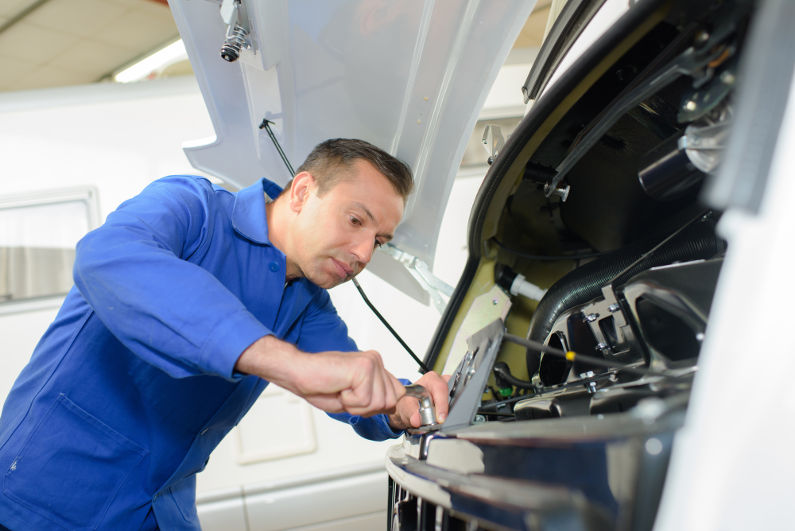A car, for the average person, is the second most expensive life purchase, after a house. Unfortunately, our beloved four-wheeled friend can often exist as a black hole that swallows up the entirety of our bank balance, with fuel, insurance, and repairs taking up the majority of expenditure.
Thankfully, these unseen expenses don’t have to mean that your life is going to be destined to public transport. Rainy mornings stood at the bus shelter aren’t a certainty, as there are numerous ways you can drive down the cost of your motoring experience.

In this article, we take a look at the variety of ways you can cost cut on the commute without leaving the car at home!
The purchase
Of course, we all want a brand-new car. The smell of fresh leather and upholstery that has just been unveiled from below the plastic seat covers is nothing shy of delightful. However, it is worth taking a step back and asking yourself — do I really need a new car? The second a car leaves the showroom and those unscathed tyres make contact with the tarmac, depreciation kicks in. Generally, a car will lose half of its residual value in the first three years after its registered on the road. The Fiat Panda 0.9 TwinAir is one of the quickest vehicles on the UK market to depreciate —holding on to 26.7 per cent of its starting price after three years.
When buying from a dealership, take advantage of the timing. Remember, like any other sales business, car dealerships and their salespeople have targets to meet. Often these targets will be measured in quarters relating to the business year, meaning the end of March, June, September, and December are a good time to get your hands on a new motor. Salespeople will be more willing to negotiate as they will be attempting to shift more vehicles in a bid to increase their quota. They will also be more likely to offer generous finance deals.
Alongside the quarter-ends, registration dates can also impact how busy a showroom will be. Try to avoid purchasing a new car at this time, as this is a popular time for buyers. Likewise, take into consideration the class of vehicle you’re going to be buying, with winter offering better deals on a convertible vehicle, as they are considered ‘out-of-season’.
Taking time to decide what you really need from a car is essential. The decision you make can impact the money you are going to spend, both in that instance, and in the long term. The larger the vehicle, the more fuel it will use, quite often the higher the insurance premiums will be, and perhaps the road tax will be.
Insurance
Especially for younger drivers, insurance can be one of the most crippling factors in relation to running a car. MoneySavingExpert.com reported in June 2019 that the average driver between the age of 17 and 22 is paying approximately £1,400 in premiums. There are ways to reduce your insurance costs though. Parking your car in a garage is more likely to deter damage and theft reducing the cost of your insurance, for instance. Avoiding speeding convictions will also go a long way in keeping your costs low.
The type of car you’re driving will impact the cost of your insurance too. However, in certain circumstances you are restricted by the fact you must share a car with a parent, partner, or a sibling. In the event of this, especially if they are driving a car with a considerably large engine capacity, it is often easier to bring down the cost by keeping them insured on the vehicle, as having a ‘responsible’ second or third driver is deemed better by insurers.
Despite the fact it may seem simplistic, many people fail to shop around and jump at the first quote they get. Price comparison sites can be useful and often they will produce a plethora of good deals, but don’t be afraid to get in contact with the insurers directly. Give them a call and get your best bargaining hat on. Even if they don’t reduce the cost of the insurance, they might be able to throw in some complementary breakdown or windscreen cover.
Finally, many people automatically assume that third party is the cheapest because it offers the least protection in the result of an accident. For the vast majority of occasions this can be the case, however, drivers who opt for third party-only insurance are often deemed high risk. Therefore, opting instead for fully comprehensive insurance can actually be cheaper.

Maintenance
One of the most heartbreaking factors of owning a car can be a breakdown — especially when you don’t know what the extent of the damage is. A blown head gasket, a snapped track rod end, or a radiator leak — they are all likely to empty the piggy bank. But there are certain measures you can take to help limit the chances of issues like these from occurring.
Although air and oil filters may be small components in your car, they are crucial for a smooth ride. Every time you change your oil, you should replace your oil filter, helping to protect your engine. Alongside impacting fuel efficiency in a negative manner, a dirty or clogged oil filter will impact the flow of oil around your engine, which can, in turn, lead to engine failure.
Regularly topping up your radiator coolant, your brake fluid, and your clutch fluid, as opposed to simply doing so when your car is heading for its MOT, are all ways of extending the engine’s overall lifespan. Likewise, use a car tyre pump to regularly top up your tyres to the manufacturers recommended PSI. Not only will this increase your fuel economy, it will extend the usable life of your tyres.
Alongside the aforementioned methods of saving money via your car, when behind the wheel there are also a number of ways you can cut costs, including accelerating and braking gently. Did you know that it takes 20 per cent more fuel accelerating from a stationary position, than from four-to-five miles per hour? Think smarter when you’re driving and you could be saving yourself hundreds, if not thousands of pounds every single year!
Sources
https://info.kaltire.com/why-change-your-oil-and-air-filter/
https://www.moneysavingexpert.com/insurance/young-drivers/
https://www.rac.co.uk/insurance/car-insurance/guides/expert-money-saving-tips
https://www.moneysavingexpert.com/car-finance/buying-new-car/
https://www.unilad.co.uk/life/this-is-how-much-time-people-spend-driving-per-week/
https://www.thebalance.com/how-to-save-money-on-all-of-your-car-expenses-1289239



